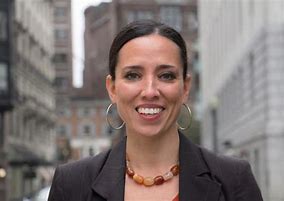Protecting reproductive freedom in Massachusetts

SONIA CHABG-DIAZ
Dear Friends and Neighbors,
Three weeks ago, we learned that the Supreme Court plans to overturn Roe v. Wade. Almost immediately, we saw states legislatures across the country move to outlaw abortion, part of a wave of repressive state laws that have jeopardized reproductive freedoms and criminalized trans youth.
But this week, I’m proud to say, Massachusetts did the opposite.
I was so proud to co-sponsor Amendment 388, and I was thrilled to see it adopted into the FY23 budget. The amendment removes barriers to emergency contraception, protects providers of reproductive and gender-affirming healthcare from civil or criminal liability, and ensures that Massachusetts laws, agencies, and institutions take no part in enforcing other states’ “bounty hunter” laws to criminalize vital forms of healthcare in and outside their borders.
Amendment 388 wasn’t the only win during this week’s budget debate, which wrapped up on Thursday after consideration of nearly 1200 amendments. I’m pleased to share that a number of other amendments that I filed or co-sponsored are also part of the Senate’s final budget package, including:
Amendment 475: $1 million more for homeless youth.
Amendments 688 and 689: $1 million more for METCO, Massachusetts’s oldest and only voluntary school integration program. Plus, an additional $500,000 for a METCO pilot program to support anti-racism work in schools through projects like culturally representative curricula and restorative justice programs.
Amendment 525: $500,000 to provide help and resources for immigrants applying for U.S. citizenship.
Amendment 12: $650,000 for the Low-Income Services Solar Program, clearing the way for more low-income and community-serving non-profits to install solar panels and adopt renewable energy.
Amendment 498: Guardrails on the use of risk assessment tools in our child welfare system. DCF has announced that they plan to adopt risk assessment tools, despite evidence that these tools can be inaccurate and racially biased.
This amendment requires that DCF document how such a tool would be used, as well as what impact it would have on Black and brown families, prior to moving forward with implementation.
These past few weeks have been hard, and I hope you’ll take care of yourself and spend some time with your loved ones this weekend.
Thank you for your advocacy—from funding for mental health to regional transit, you made a difference. And thank you for continually pushing for a Massachusetts that lives up to our best values, where we fund the systems—in health care, education, transportation, housing, and more—that keep everyone healthy, connected, and safe.
Saludos,
Sonia Chang-Díaz
State Senator, Second Suffolk District
